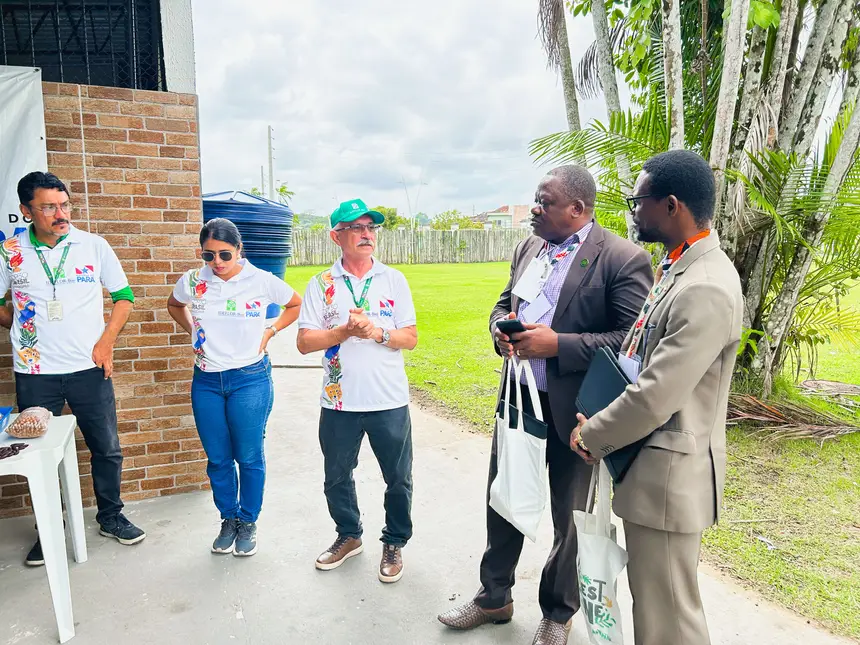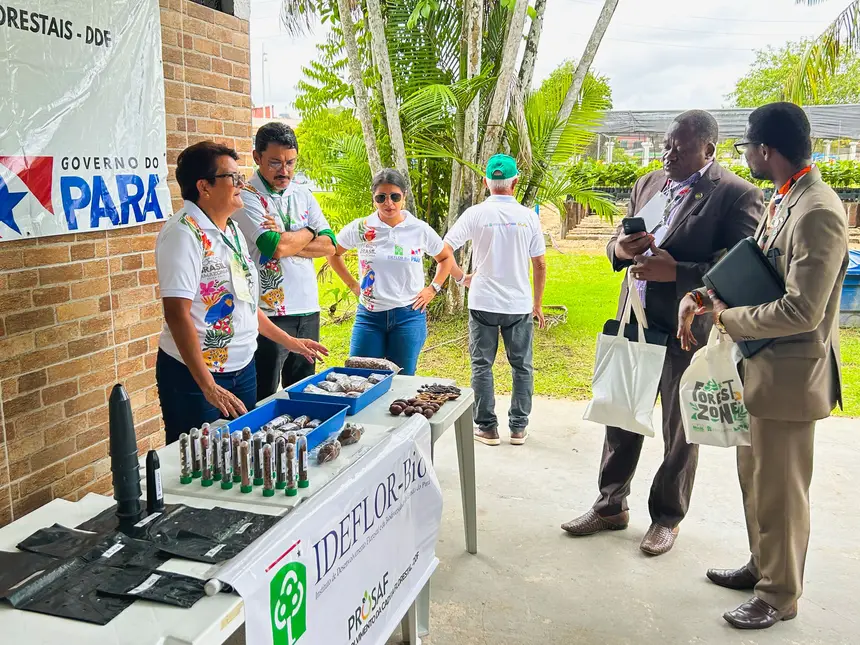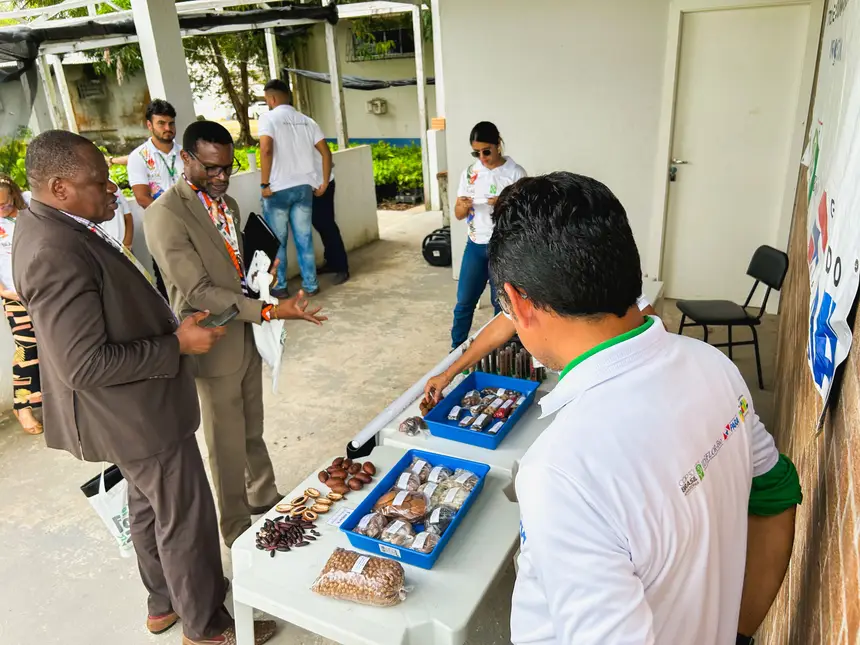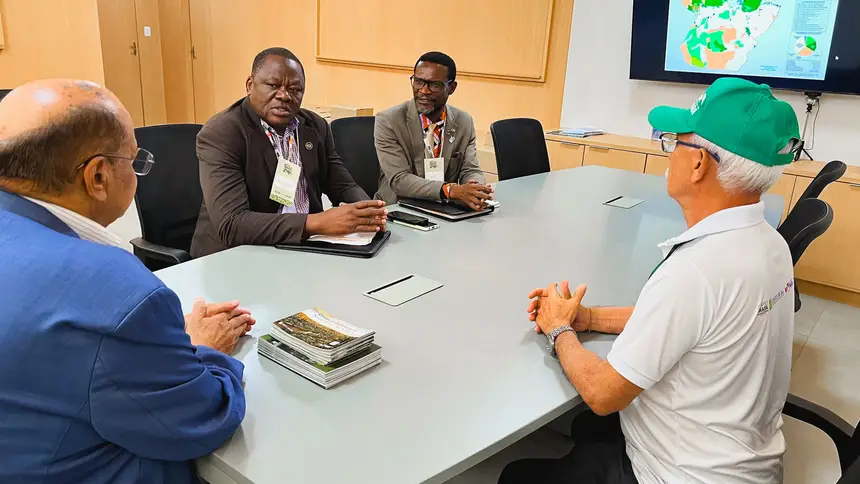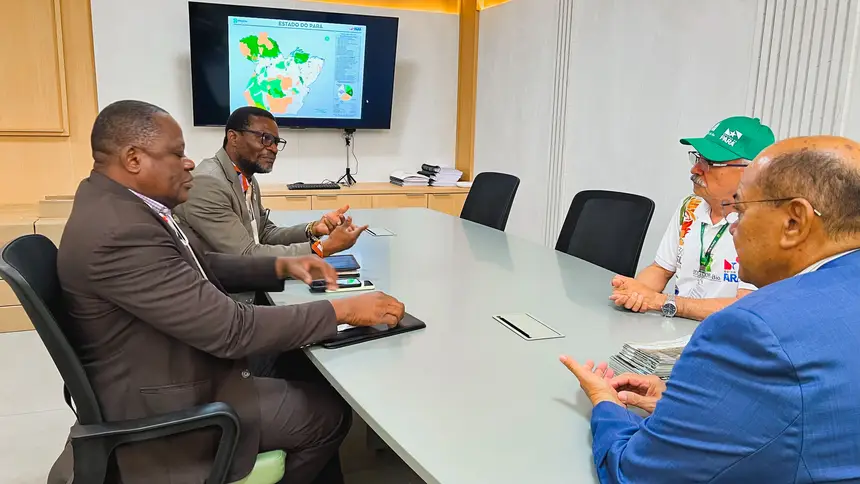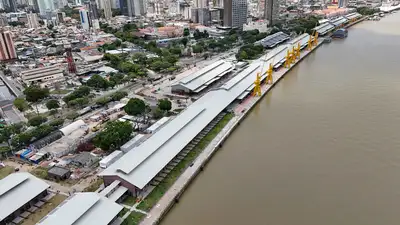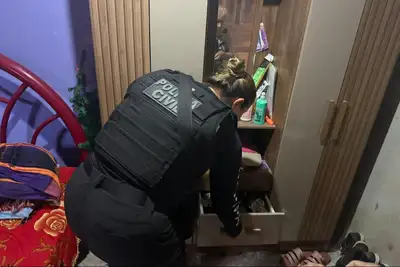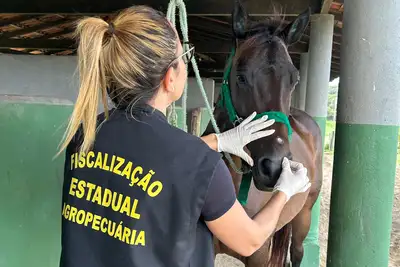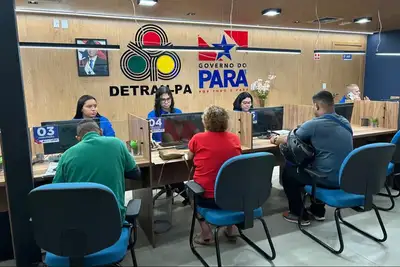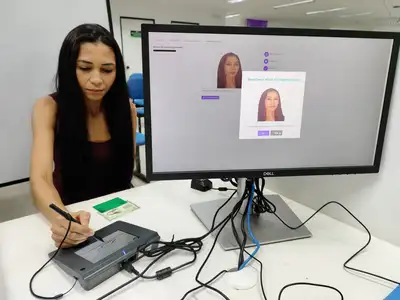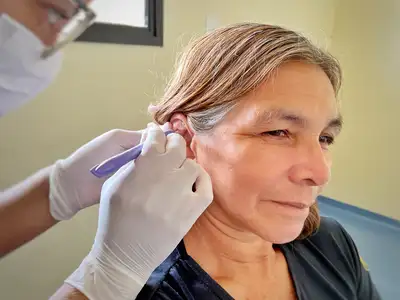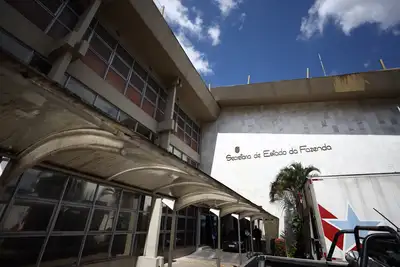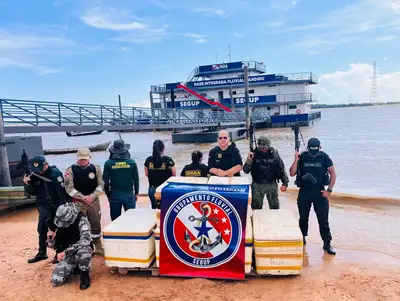Ideflor-Bio and delegation from Ivory Coast strengthen cooperation in agroforestry systems
The lines of action of Ideflor-Bio were presented and possibilities for technical cooperation between Brazil and the African country, a major cocoa exporter, were discussed.
The Forest Development and Biodiversity Institute of Pará (Ideflor-Bio) received, on Thursday (13), a delegation from the Ivory Coast interested in learning about the forest restoration work with agroforestry systems (SAFs) developed by the Institute. The visit, led by the Forest Chain Development Directorate (DDF), reinforced Pará's role as a reference in the implementation of sustainable productive models that combine income generation, conservation, and environmental recovery.
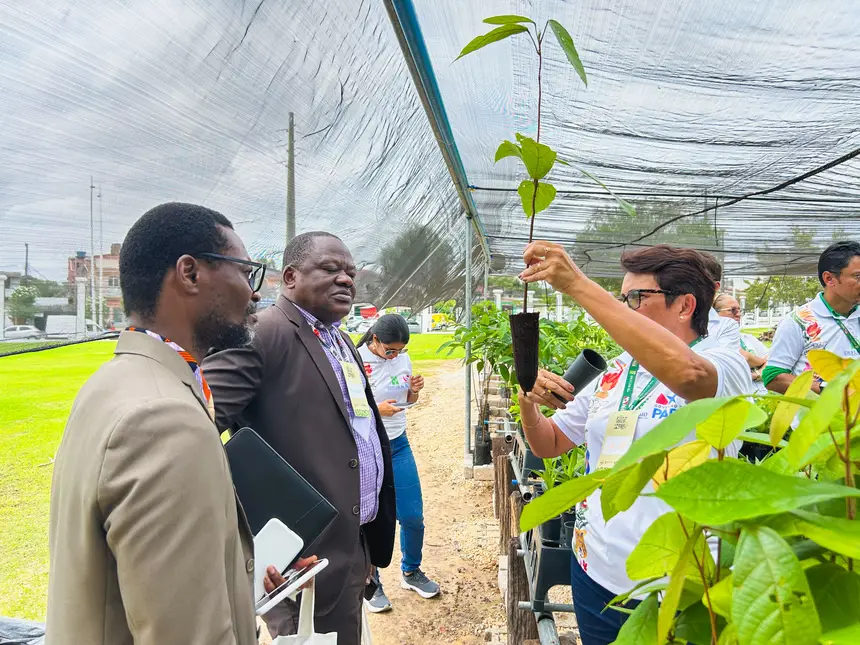
The president of Ideflor-Bio, Nilson Pinto, along with the head of DDF, Vicente Neto, welcomed the group, which included the representative in charge of Animal Resources, Fisheries, and Food Security from the Ivory Coast Embassy in Brazil, Moussa Traoré, and the embassy assistant, Éric Billy Moh Kolai.
Nilson Pinto highlighted the symbolism and strategic importance of this dialogue, emphasizing that "forest restoration through SAFs is, today, one of the major agendas of the Amazon. Showing what we are doing, and learning from a country that is a world leader in cocoa production, strengthens our capacity to innovate, to form partnerships, and to build global solutions for common challenges."
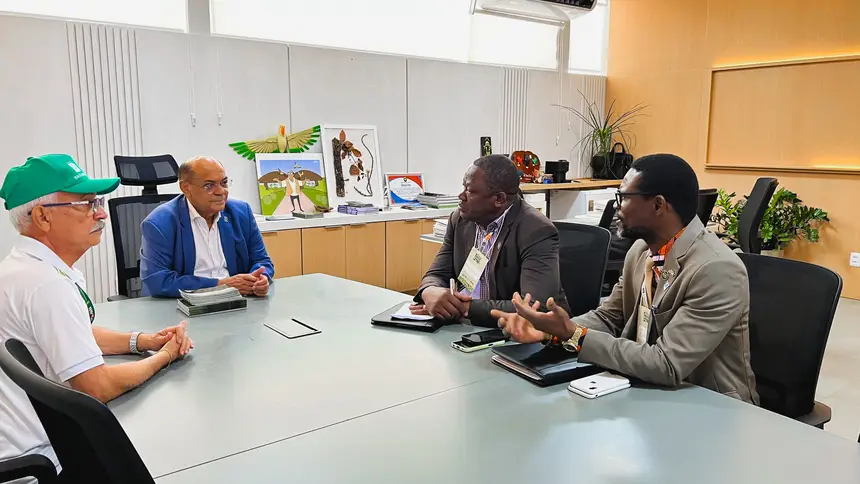
The program began with an institutional presentation about the lines of action of Ideflor-Bio, followed by a meeting with the president of the agency, where possibilities for technical cooperation between Brazil and the Ivory Coast were discussed. After the meeting, the technical team took the delegation to the Institute's nursery, where they presented the inputs used, the main Amazonian seeds, and the production methodologies.
Exchange of experiences - The diversity of species caught the visitors' attention, who were particularly enchanted by the cumaru, popularly known as the "vanilla of the Amazon," especially for its similar and striking aroma. "We showed our seedling production methods, the packaging, the substrate, and the structure of the nursery. We talked about Prosaf (Agroforestry Systems Program), the workshops we take to communities, and the production capacity, which reaches 15 thousand seedlings," detailed Ideflor-Bio environmental analyst, Kassya Oliveira.
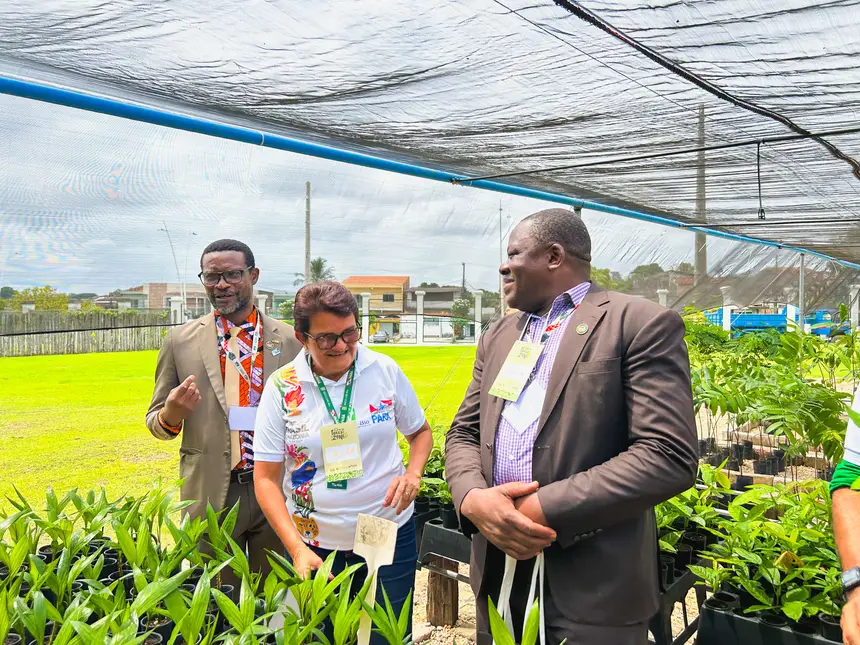
Vicente Neto also presented a summary of the production process that supports the SAFs. "We were able to show the entire path: from seed to SAF implementation. We explained the species used, the spacing, the productive arrangements, and even built a model of the system inside the nursery. They were very interested and impressed with the diversity of our Amazonian seeds," said the director. He highlighted that the exchange of experiences was enriching, especially when comparing the climatic realities of the two countries, which are similar in rainfall regime.
From the Amazon to Africa - The team also prepared a demonstration unit of SAF within the nursery, allowing the representatives from the Ivory Coast to see, in a practical way, how cocoa, açaí, nuts, and other species coexist in the same productive arrangement. The visitors asked technical questions, took pictures, and requested informational materials, such as the layout of the agroforestry arrangements used by the Institute. According to the team, "they were delighted with the structure and organization of the work."
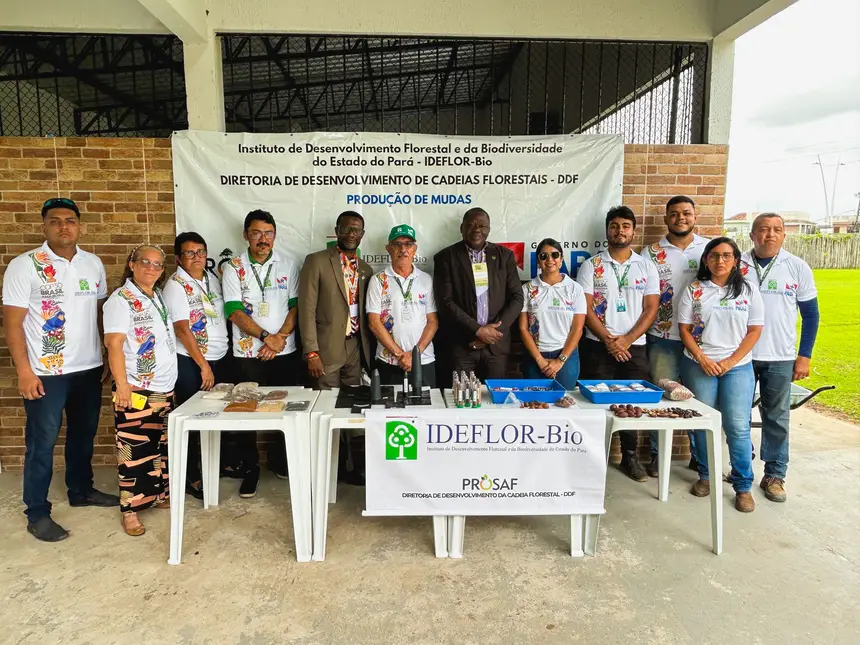
For the manager of Production and Support for Forest Productive Arrangements at Ideflor-Bio, Laura Dias, the visit solidified as a moment of institutional strengthening and international recognition of the work carried out in Pará. "Welcoming the Ivory Coast was an opportunity to showcase our experience in SAFs, which integrates production, conservation, and recovery of degraded areas. The exchange was very rich. We presented our advances and learned about their strong cocoa tradition, which opens doors for future cooperation," she emphasized.
The delegation reinforced its interest in expanding exchanges with the State of Pará. The technical dialogue marked the meeting, in addition to valuing traditional and scientific knowledge, which reaffirms the role of Ideflor-Bio as a reference in promoting agroforestry systems and building diplomatic bridges that help protect and transform the Amazonian landscapes.


